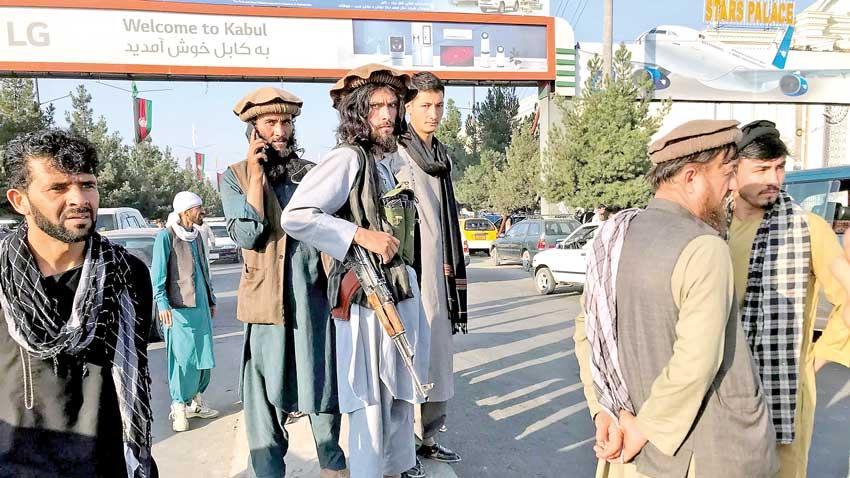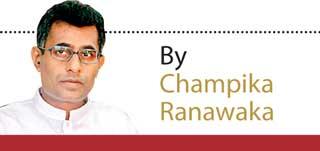Reply To:
Name - Reply Comment

A Taliban militant (center)stands outside Hamid Karzai International Airport
Afghanistan was referred to as the graveyard of the Western empires. Alexander the Great, the British Empire, the Soviet Union and the US were all defeated in Afghanistan irrespective of their expertise in conquest
 On January 13, 1842 a mounted cavalier trudged to British ruled Jalalabad Fort in India. This cavalier was none other than William Brydon, the sole survivor of 16,500 strong British contingent which led an invasion to Kabul.
On January 13, 1842 a mounted cavalier trudged to British ruled Jalalabad Fort in India. This cavalier was none other than William Brydon, the sole survivor of 16,500 strong British contingent which led an invasion to Kabul.
Suffering a crushing defeat at the hands of the barbaric and uncivilised Afghans, for the British, would have come as a surprise to Queen Victoria and her legions.
British troops nonetheless managed to defeat China and claimed Hong-Kong during the opium-war and laid waste to Kabul-Afghanistan in 1843 by incinerating the entire city in a bid to avenge their defeat. Quickly after doing that they retreated.
|
William Brydon |
British troops invaded Afghanistan on three occasions. (1839-42 / 1878-80 / 1919). Winston Churchill who was victorious as the British Defence Minister during the 1st world war was defeated in Kabual, and admitted that Afghanistan was a sovereign nation (1990).
Churchill suffered defeat even after ordering British troops to use chemical weapons to subdue Afghanistan.
Churchill when questioned in Parliament regarding the use of chemical weapons said “If it is a fair war for an Afghan to shoot down a British soldier behind a rock and cut him in pieces as he lies wounded on the ground, why is it not fair for a British artilleryman to fire a shell which makes the said native sneeze?”
Many who are all too familiar with Nazi gas chambers may be oblivious to the fact that chemical weapons were part of war-fare several decades before Adolf Hitler.
Afghanistan was referred to as the graveyard of the Western empires. Alexander the Great, the British Empire, the Soviet Union and the US were all defeated in Afghanistan irrespective of their expertise in conquest.
The US recalling its troops in Afghanistan which is a sovereign nation may be viewed as a move to uphold the universal rights of a sovereign nation enshrined in the
UN Charter.
The US occupation of Afghanistan came in response to the 9/11 attacks which was believed to be spearheaded by Osama Bin-Laden’s Al-Qaeda.
On September 11th later this year it will mark 20 years since the Twin Towers were brought down by what some have literally referred to as flying bombs; planes packed with fuel.
Approximately 3,000 US Citizens lost their lives during the 9/11 attacks and thousands more suffered debilitating injuries. The economic impact of the 9/11 attacks amounted to trillions of dollars.
Ironically Anglo-US troops which led an occupation to Afghanistan in order to foil such attacks in the future returned home shouldering the deaths of around 3,500 servicemen and women. This war was funded by the US tax payer at a cost of two trillion dollars; which gave rise to an even more formidable enemy, the Taliban.
The Taliban captured US bases and released thousands of captive Al-Qaeda and ISIS prisoners, making it possible for them to freely roam in Afghanistan and strike fear.
Many analysts term the withdrawal of Anglo-US troops from Afghanistan as a tragic misstep which was done devoid of a post-war political strategy.
A similar situation was experienced in Sri Lanka back in 1989 following the post departure of the Indian Peace Keeping Force also referred to as the IPKF. The aim of the IPKF was to deter terrorism and restore peace in Sri Lanka.
However, Sri Lanka’s Premadasa administration and the office of then Indian Premier Prathap Singh were accused of causing the IPKF to hastily withdraw due to the absence of a post war political strategy.
As a result, the Tamil National Army a group of para-militants formed under the Indian Army were comprehensively defeated during a quick foray by the LTTE.
The LTTE then secured power in the North and the East while massacring Sri Lankan troops as well.
The LTTE which was a guerrilla organization transformed into a full-fledged military outfit plainly due to the myopic policies of Sri Lanka’s former leaders and Rajiv Gandhi and R. Premadasa paying the ultimate price for it with their own lives.
Furthermore from (1989-2009) 25,000 security personal lost their lives in confrontations with the LTTE apart from the human and economic devastation Sri Lanka was forced to undergo as a result of the conflict.
The Taliban seizing power in Afghanistan subsequent to the withdrawal of US troop shares many similarities to what took place in Sri Lanka between 1989 to 1990.
What could possibly be the outcome now? Afghanistan was the battle arena for powerful nations since time immemorial between the British & the Russians, between the Russians & the USA etc. What will become of Afghanistan between the tug of war for global supremacy between Russia, Pakistan, China, India & the US?
Will Afghanistan become another post-war Vietnam or Iraq /Libya?
Vietnam in the past waged wars with the French, the Japanese, the US & Chinese invading forces.